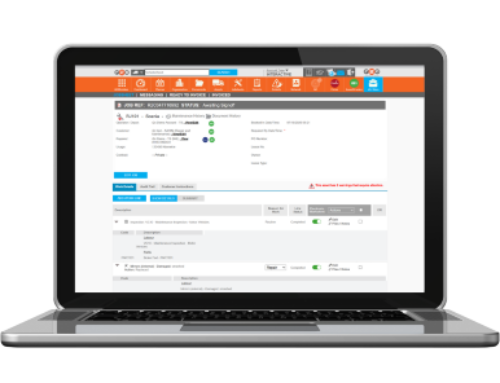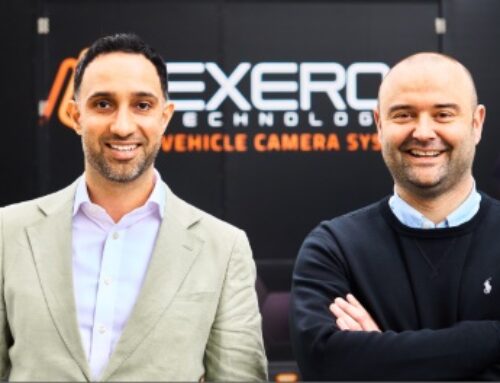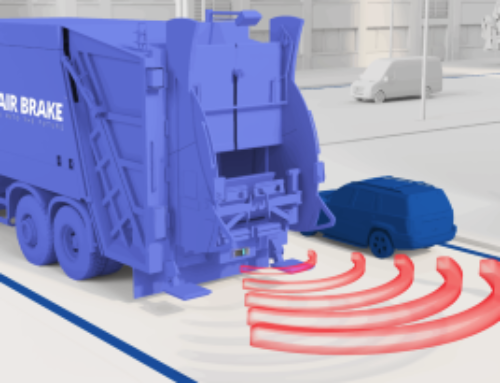Power up for chilled efficiency
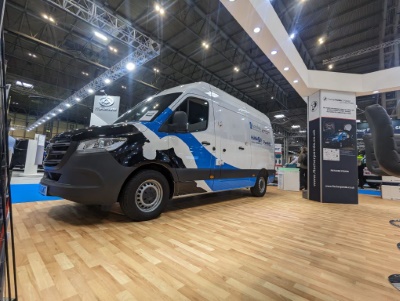 In collaboration with cooling equipment supplier Hubbard, Fischer Panda UK explores how hybrid power systems can reduce costs for refrigerated fleets
In collaboration with cooling equipment supplier Hubbard, Fischer Panda UK explores how hybrid power systems can reduce costs for refrigerated fleets
Refrigerated vehicles historically have some of the highest operational running costs of any commercial vehicle on the road. The constant need for power to operate cooling systems that regulate temperatures in line with the strict regulations around the transportation of perishable, chemical and pharmaceutical goods tends to consume more fuel and energy compared with many other types of commercial vehicles.
As leading providers of integrated power and HVAC system solutions to the automotive and specialist vehicle sector, Fischer Panda UK devise energy-saving hybrid power solutions that help to optimise vehicle refrigeration systems and reduce energy consumption without compromising on performance.
Leading vehicle refrigeration systems specialist Hubbard teamed up with Fischer Panda UK, along with Acrobat Vehicle Rentals and vehicle conversion specialist Paneltex, to work on a collaboration utilising a Mercedes Sprinter fridge van to produce a demo vehicle for the pharmaceutical industry.
The project
The project addressed the requirement for a demonstration fridge vehicle that displayed more efficient and smart power and energy management systems without opting for a full electric vehicle to meet the power demands and efficiency levels required. Although the design was created with the pharmaceutical sector in mind, it will also work well for transportation of perishable products such as food produce and offers good versatility.
The overall purpose of the application was to provide a vehicle where the fridge ran efficiently and independently of the vehicle, meaning a no-key-out system which allows the engine to carry on running during deliveries and maintain temperature.
The system also needed to safeguard against potential costly mechanical engine issues and allow the fridge to continue operating and hold the temperature of the goods until either recovery of the vehicle or transfer of the goods to a working vehicle can take place. This is an important feature of this vehicle as typically on a standard direct drive (engine driven) refrigeration vehicle, if the engine fails, the fridge will stop working, with the damaging consequences of losing high value loads in the process. In the pharmaceutical sector, this can sometimes equate to millions of pounds in loss.
Installation
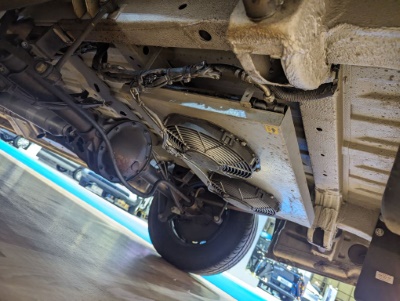 The van is fitted with a SFZ009e multi temperature invisible refrigeration unit with an undermount condenser to keep the aerodynamic shape of the vehicle. This meant there was no requirement to cut into the van structure above the driver to mount the condenser. With this design, it also means a standard high roof headliner can be used if required for more head room in the cabin.
The van is fitted with a SFZ009e multi temperature invisible refrigeration unit with an undermount condenser to keep the aerodynamic shape of the vehicle. This meant there was no requirement to cut into the van structure above the driver to mount the condenser. With this design, it also means a standard high roof headliner can be used if required for more head room in the cabin.
Power up
Fischer Panda UK worked closely with Hubbard to provide an effective solution to power the eFridge system and ensure the power management met the demands of the vehicle. A highly efficient Mastervolt hybrid Li-Ion power system accompanied by a solar panel system was tailored to the vehicle’s requirements.
The solar panel system allows for green, energy-efficient charging of the Mastervolt battery system even when the vehicle is not in use, also offsetting the vehicle’s power consumption whilst idling.
Mastervolt’s ultra efficient battery management and power technology systems provide some of the best performing power solutions without needing to compromise on energy-saving capabilities. The battery system provides consistent and highly reliable power to meet the high power-draw of the onboard systems without relying on the vehicle’s engine. Incorporating solar power allows for greater energy independence, especially in remote areas or during extended periods of use away from charging infrastructure. Utilising solar power also provides a renewable and eco-friendly energy source, reducing the vehicle’s overall carbon footprint.
Efficiency
The benefits of lower fuel consumption and lower emissions created as a result of less demand on the vehicle’s engine were supplemented by the greater fuel efficiency created due to no additional crank pulley being required, which would usually take more power from the engine.
The power management system also allows the stop/start function to operate effectively. The refrigeration unit has a sensor which registers when the fridge has reached the required temperature and will then cut cooling off and maintain this temperature, conserving the energy of the battery system.
The benefits in the consistency of the eFridge system over a more traditional direct-drive system are important. Vehicle refrigeration typically relies on the engine rpm to generate power, while the eFridge system gives instant power constantly, allowing the refrigeration to maintain a consistent temperature and not fluctuate with engine rpm which creates drops in performance.
The results
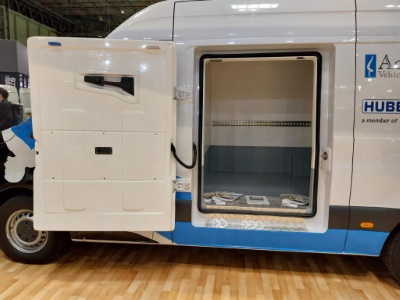 This high-efficiency refrigeration demo unit from Hubbard required an equally efficient and reliable power system to support it. Fischer Panda UK’s expertise in designing and installing hybrid systems, ensured that the vehicle’s power demands, energy saving capabilities and emission reducing potential, were all considered for the project.
This high-efficiency refrigeration demo unit from Hubbard required an equally efficient and reliable power system to support it. Fischer Panda UK’s expertise in designing and installing hybrid systems, ensured that the vehicle’s power demands, energy saving capabilities and emission reducing potential, were all considered for the project.
Hubbard is already dealing with considerable interest in the vehicle and has experienced good levels of enquiries since its launch and showcase at the recent Commercial Vehicle Show.
“We chose to work with Fischer Panda UK as they have a great reputation for working on bespoke automotive applications with variable power demands. We required their extensive expertise in finding a hybrid power solution for this refrigerated vehicle that demonstrated a reliable alternative power source in an engine-driven vehicle without the need to opt for an EV,” said James Oxtoby of Hubbard.
Chris Fower of Fischer Panda UK said: “The levels of efficiency and reduction in operational costs for users of this vehicle is significant. Combined with the ultimate aim of transporting and preserving temperature-sensitive goods in line with regulations, this refrigerated vehicle’s power system design has delivered exactly what was required.
“The technologies installed within this application not only reduce operating costs by minimising fuel consumption when the vehicle is idling, they also support the vehicle in meeting ambitious emission-reduction targets set for vehicle and fleet operators,” he concluded.
Optimal power solutions for refrigerated vehicles will vary greatly depending on the requirements and operating conditions of the specific vehicle along with its usage, onboard systems, load, size and specialist requirements. Fischer Panda UK works alongside leading brands to bring optimised hybrid power solutions to a host of applications, and was delighted to work with Hubbard on this successful project.









